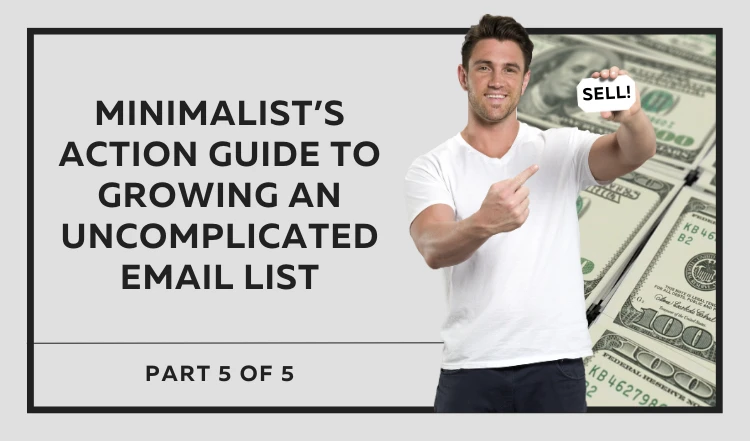Table of Contents
Creating your first product can be so exciting. You’re waiting for that influx of hard, cold cash, but if you don’t have connections and a blueprint of how to launch a product successfully, you might find that it enters the marketplace without much fanfare.
This can be very disappointing – especially if you’ve worked hard to create a product for your niche that you’re extremely proud of. But it doesn’t have to be this way. You need some insight about how to prepare for a product launch, and then you will see the kind of return that you were hoping to get.
Create a Product Attractive to Your Target Audience
One big mistake many marketers make is that they release a product that they think would be good. But that’s not what the market is buying. The market is buying products they need.
So, before you even create a single page or video frame, you need to conduct ample research to make sure that your idea is something people are hungry for – and willing to pay for as well.
It doesn’t matter how much free information is out there. There are hundreds of dating tip sites, and yet men and women continue to pay a lot to gain insight from a product they must fork over money for.
If there’s competition, don’t let that scare you off – let it be a signal to you that other people are seeing success in this niche, with a similar idea to your own – or at least in the same neighborhood.
You want to price your product s that it’s viewed as a competitor in the marketplace. This doesn’t mean cheaper than the competition – it means that you’ve priced it in a way that shows you believe in it – that it’s so good, it deserves this price tag.
Many newbies assume that a cheap price tag will make customers swarm, but all it ever does it make selective buyers think your product must be fluff and filler, because anyone with a detailed, meaty product would charge more.
Part of the success of your product launch will be bringing on joint venture (JV) partners and affiliates. Trying to sell a lot on your own is doable, but you have to be a master at traffic generation to achieve the same results that you would with these types of business partners.
Contact JV Partners Early
When it comes to JV partners, this isn’t someone you can hit up a day or two before your product goes live and inform them about your launch. In fact, you’ll fail miserably with this approach.
Serious JV partners have a schedule they adhere to when it comes to their promotions, and you have to get on their calendar months in advance. That means having your product ready well in advance, too – because they’ll expect to receive advanced free access to the finished product.
This is hard because as a product creator, you’re champing at the bit ready to launch the day you write the last word or film the last video. You finished, and having to wait seems like an eternity.
But that’s the way top product launches work. The preview access should be given when you first email the potential JV partner. You never ask them if they want to see it – or tell them you’ll give them access if they want it.
Always assume they do – because if you have to make them take a single extra step by emailing you back to say, “Sure, I’d like to see it,” you’ll lose them. Many times, marketers will think, “No” to themselves, but if the product is already attached, they’ll have a peek anyway – and end up liking it so much they promote for you!
JV partners like to have a perk known as early promotions. They want to be first – it’s like getting past the velvet rope and into the VIP lounge because it means they’re so good, they don’t even have to wait for the competition with the masses.
It doesn’t have to be a lengthy early promotional period. You can launch 72 hours early with JV partners and let affiliates get in on the action three days later. This is just enough time to appease the JV partners.
You can attract many of them with a contest using a JV leadership board. Many newbie marketers see this concept and think it’s all about the money, but it’s not. For top joint venture partners, it’s about the prestige of coming in at the top.
Leadership boards should never promise prizes you can’t afford to give out, but you can set parameters in place where they have to have a certain number of sales to be eligible for the contest, and this ensures that you can cover the prize.
Special sales copy might also be an incentive to offer to your JV prospects. Sometimes this is a perk where they feel special, having sales copy specifically crafted to their subscribers.
Other times, it’s not a prestige thing, but a necessity. You might approach a marketer whose list responds better to text (or video) and you’re using the opposite format.
Or maybe you have an extremely hyped up sales letter and the marketer wants it toned down a bit. Be willing to placate them, and you’ll find that they might say yes often.
One last thing about JV partners: They expect to be paid more, regardless of whether they win a contest. The commission rate should be much higher than what you offer to affiliates – sometimes as much as 75% of the sale.
Have an Affiliate Program in Place
For a successful launch, not only do you need to secure some high-end JV partners, but you also want to develop a thriving affiliate program. This is something that you’ll promote just as much as you do your product, if not more.
What do you need for a successful affiliate program? You need sales copy to convince people to promote your product, for starters. Just as you would write copy for your product, draft some that excites affiliates, informs them, and makes your program one they can’t afford to miss out on.
Train your affiliates on the best way to promote your product. Many affiliates don’t know the best way to reach your niche market, or what tools they respond best to.
Have a bevy of supplies that help them make sales. You want to have many items, including:
Banner ads – vertical, horizontal, animated, and non-animated, all different sizes and some color options
Twitter Tweets
PPC ads they can use on Google AdSense and other ad companies
Email swipe lists for a series of emails they can release
Solo email ads they can use
Viral PDF files they can use with their own hyperlinks
Blog posts
Articles
Have a contest separate for their motivation. This one won’t be a competition between JV partners and affiliates – it will be reserved for affiliates only. You can give away things like cash, electronic gadgets, or gift cards.
Give them a decent amount of commission, too. Nothing less than 50%. This makes it worthwhile to them to promote you, because many of these affiliates are lurkers, yet top sellers – and they want a return for their investment of time and space in their schedule.
Secure Testimonials and Repair Your Product
Before your product ever launches publicly (or to affiliates and JV partners), you can release it to a few individuals to get their feedback about the product. With some, they’ll be good enough to use as testimonials on your sales copy.
Other people might have constructive criticism. You want to choose people in the niche who need the product, not just friends and family members. Advise them that the reason you’re giving them access is that you need feedback to help improve your product.
They may find nothing wrong at all – but if they do, it will be a blessing for you to find out about it early on before you suffer humiliation in front of JV partners, affiliates, and the masses of customers that you’re selling to.
Make sure you get the right kind of testimonials. They should be honest – someone who has truly read the product. Don’t make them up and stick a stock photo with it and a fake name. You’ll get caught.
But do get a real headshot of the person giving the testimonial. It’s also great if they can give you a short testimonial via video that lasts under 3 minutes. They can state their name and tell what their experience with your product has been.
Soft Launch Testing
Before you launch openly, you want to conduct a soft launch to see how your sales copy converts. Tweaking sales copy is easy, but you need to split test certain elements like headlines and bullet points to see which one makes customers respond better.
You can either soft launch to your own list or arrange with another marketer to soft launch it to their list with them getting a paid promotional fee or commission, whichever choice they want.
You can also soft launch segments of your list. Launch to one segment first, make changes based on feedback, and then soft launch to another segment for a follow-up batch of feedback before it goes live.
Test the Process for Functionality
A long time ago, marketers used to brag about how they crashed their servers with so much traffic. Truth be told, much of this wasn’t true – although some did experience true technical difficulties.
Either way, it’s frustrating and unacceptable to the people who matter most – affiliates and customers. No one wants to land on a site expecting to be able to buy something, only to have a site that’s not functioning properly.
You want to test every element – how various payment processors work, if the automated delivery or download system works properly, and even if your buyer receives the right files!
Make sure that the test includes how they’re signed up to your list. Do they get a confirmation email? Is the email written exactly how you want it to be – with no broken links? Once the functionality of the process is ensured, you can begin bringing on partners and building a buzz.
Build a Buzz
Develop some pre-release fanfare for your product. You want people to know it’s coming. Think of your promotional steps the same way movie companies plan their releases.
You see snippets of a coming attraction at the end of other movies (which you can do at the end of your previous products). You see trailers being advertised (video buzz works well for this regarding your own products).
You can use a variety of media to let people know what’s coming and create teasers for them. Podcasts, video marketing, and PDFs – even limited access inside a membership area will work!
At the very least, take the first chapter of your product and release it for free to make people build up a desire to see the rest. Give interviews, guest blog, and host webinars that help people learn what the product is about and why they’ll need it when launch day arrives.





